Welcome the New Marlboro Institute Faculty (Part 1)
Meet the newest faculty teaching in the recently renamed Marlboro Institute of Liberal Arts and Interdisciplinary Studies at Emerson College. The Marlboro Institute will carry forward the academic legacy Marlboro College, which formerly entered into an alliance with Emerson in July. This is is the first part of a two-part series.
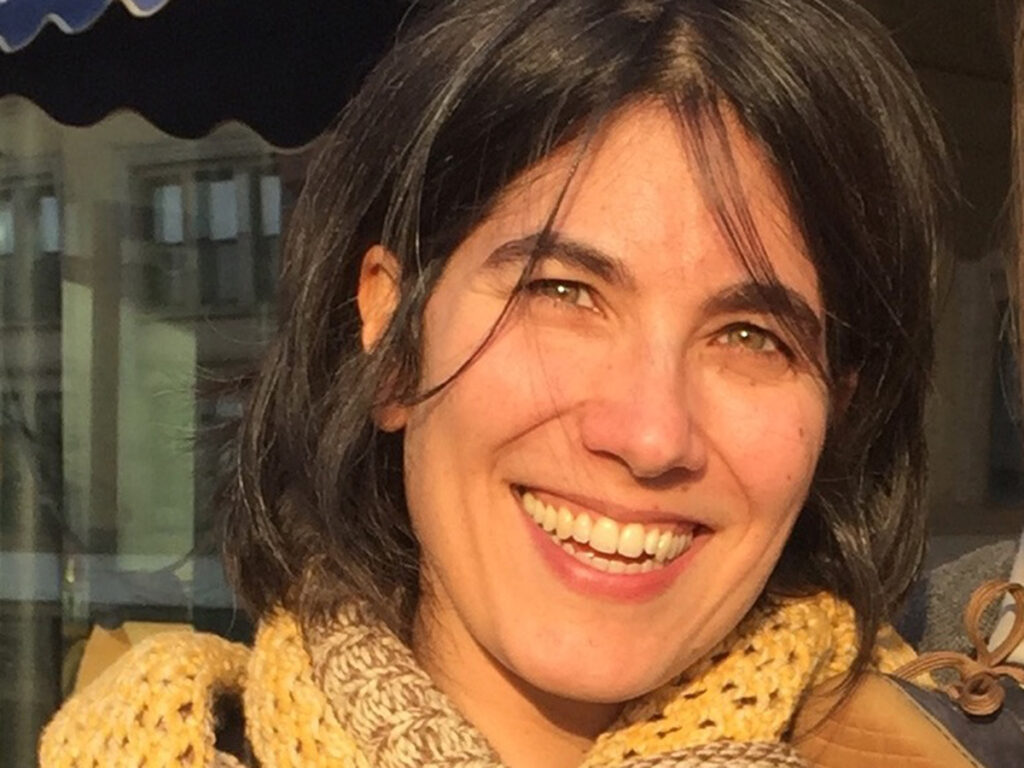
Sara Salimbeni
Associate Professor
Sara Salimbeni is a physicist and astronomer whose interests span from the evolution of galaxies to the gender dynamics in science classrooms. She obtained her PhD in Astronomy at Tor Vergata University of Rome, and completed her postdoctoral research in Astronomy at the University of Massachusetts Amherst. Her astronomical research has focused on the physical mechanisms that trigger and shut down the star-formation in galaxies and drive galaxies’ stellar mass assembly through cosmic time. For the past nine years, Salimbeni has been a member of the Marlboro College faculty teaching physics and astronomy. Motivated by her personal experience and the small number of women in physics and astronomy, she has begun to research how female students’ interest and proficiency in science are affected by K12 education. She recently pursued and obtained a master’s degree in Teaching for Social Justice to inform her education research.
ET: What do you want your students to learn from your class?
SS: This semester I will teach two courses: Physics of Everyday Life and Energy and Sustainability. Each class has its learning objectives. In both cases, I would like students to learn how to evaluate reliable scientific information and use it to make informed decisions.
ET: What was the last thing you learned?
SS: I have been given a children’s book about bugs for my 2.5-year-old daughter. As any good toddler does, she already asked me to read the book 10 times in a row. I discovered many fascinating bugs that I wasn’t aware existed. For example, the atlas moth is a beautiful giant moth, and its male has a peculiar pair of antennae.
ET: What do you like to do when you’re not working?
SS: I love cooking. I own a decent collection of cookbooks. I like to buy a cookbook from every place I travel. I enjoy selecting a book, researching all the ingredients, and creating a full, elaborate dinner. Before I had my daughter, the cooking could have taken days.
I love dancing the tango and going to the local circus school to learn fabrics. I am not good at it, but I like the challenge! I haven’t been able to do either of these since the pandemic started.
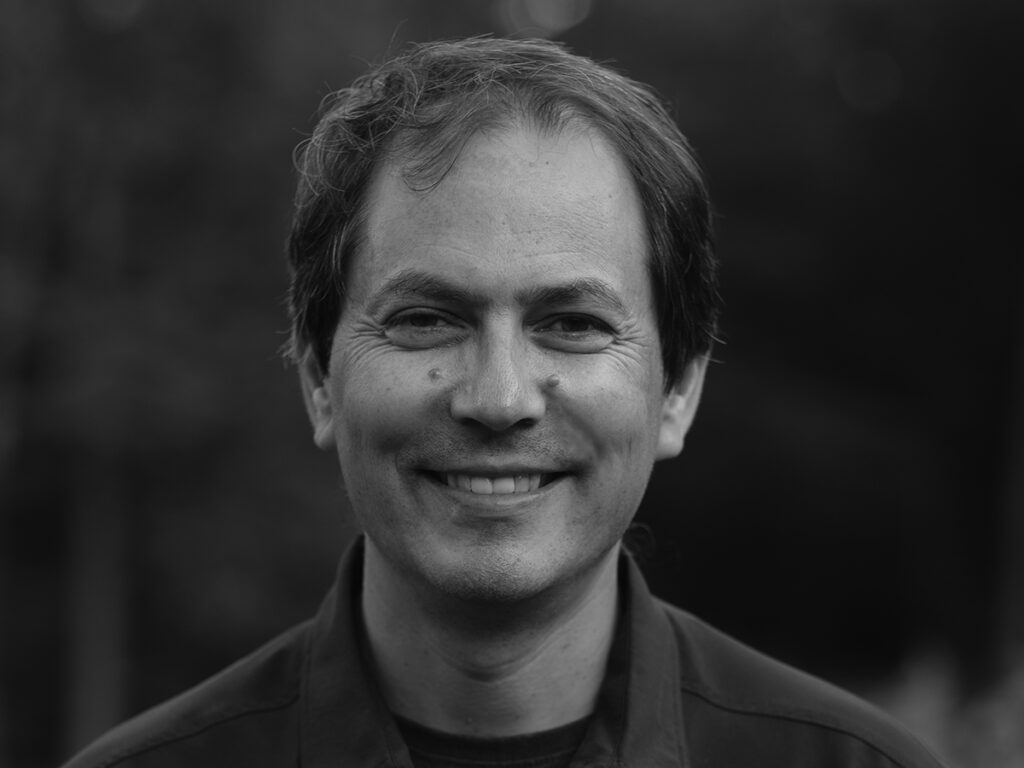
William Edelglass
Associate Professor (on professional leave, 2020-2021)
William Edelglass publishes broadly in Buddhist studies, environmental humanities, and philosophy. Recent work includes writings on climate ethics, human dignity, the work of B.R. Ambedkar, the relation between faith and reason in Indian Buddhist literature on the path, the role of mindfulness in ethics, Buddhist apophatic discourse, and the contemporary discourse of Buddhism and happiness. He is chair of the board of directors of the International Association of Environmental Philosophy and co-editor of the journal, Environmental Philosophy. Edelglass also is co-editor of Buddhist Philosophy: Essential Readings, The Oxford Handbook of World Philosophy, and Facing Nature: Levinas and Environmental Thought. He currently is on a multi-year leave, serving as the director of studies at the Barre Center for Buddhist Studies in Barre, Massachusetts.
ET: What do you want your students to learn from your class?
WE: Oh, lots of things, including how to write with clarity, read both critically and sympathetically, to imagine new possibilities of thinking and being, to become better listeners, and to increase their capacities for allowing a sense of confusion, wonder, and not knowing about what we may have assumed that we already knew.
ET: What was the last thing you learned?
WE: The last thing I learned was how to split 12-foot black locust logs to make into posts for the new fence we are building on our homestead in Marlboro.
ET: What do you like to do when you’re not working?
WE: I live with my family on an off-the-grid homestead. We heat only with wood that we cut and split ourselves, and raise a lot of our own food … During the pandemic, I have spent a lot of time with my 5-year-old twin daughters as they learned how to swim. And how to ride bikes without training wheels (at the same time, I have been learning how to ride a unicycle). And pretty much every day I walk with our dog on the miles of trails on the ridge above our home. And I like to spend time with friends…
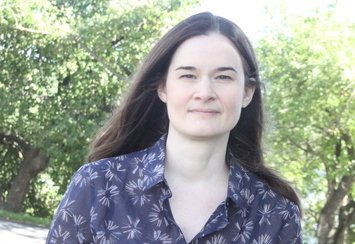
Jennifer Girouard
Assistant Professor
A first-generation college student from a working-class family, Jennifer Girouard earned her PhD in Sociology from Brandeis University in 2016, after a BA in Sociology from Marlboro College in 2001, with jobs at a homeless shelter in Massachusetts and with Head Start in Appalachian Ohio in between. Her interests include political sociology; sociology of culture, law, and society; and qualitative methods, with a focus on land-use conflicts and housing inequality as it intersects with race and class. Previous publications include work on democratic and civic innovations, and her current research is on the collaborative avoidance of race during affordable housing hearings. Girouard had been at Marlboro College since 2016, and taught courses including subcultures, urban sociology, research methods, and social theory; oversaw an internship program; and created a multi-year seminar program covering project management, advanced field research, and data analysis.
ET: What do you want your students to learn from your class?
JG: How to activate their sociological imaginations so they can understand society and their place within it. That includes analyzing the familiar, everyday life that we take for granted, understanding power structures, and questioning what enables social change and contributes to social stability. This new lens of seeing the world can inform other academic interests, and also help students as they navigate society in general (fair warning: once activated, it is hard to turn off!).
ET: What was the last thing you learned?
JG: I’m taking a course on historical embroidery, so I am learning how to make needle lace and 3D objects (stumpwork) with thread, just as they did in the 17th century.
ET: What do you like to do when you’re not working?
JG: Kayak, hike, and pre-COVID, you would find me crate-digging for 45s and attending stand-up comedy shows.
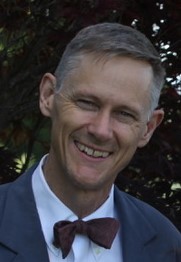
Seth Harter
Associate Professor
Seth Harter comes to the Marlboro Institute after 20 years of teaching at Marlboro College. There, with the encouragement of his students, he turned a rather narrow interest in modern Chinese political history into a broad familiarity with Asian history and culture, delving deeply into the topics of colonialism and decolonization, Daoism, environmental studies, and – most recently – craft and aesthetics. His work has been supported by grants from the American Council of Learned Societies, the Committee on Scholarly Communication with China, the Henry Luce Foundation, and the Freeman Foundation. Harter earned his BA from Yale University and his PhD from the University of Michigan. He has spent more than five years teaching and studying in Hong Kong, Guangzhou, Hanoi, and Kyoto, and has helped to coordinate student travel to every corner of the globe.
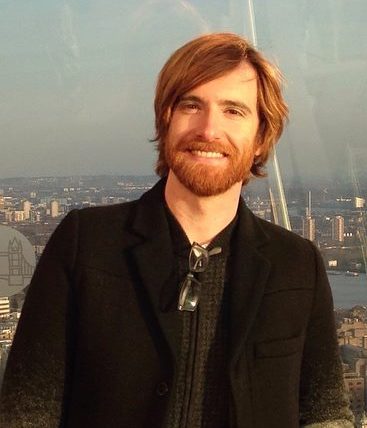
Ian McManus
Assistant Professor
Ian McManus is an assistant professor of political science whose work focuses on the effects of macroeconomic changes on political competition and social wellbeing. His research interests include welfare state politics, social inequality, gender equality, economic crises, labor markets, European politics, and the political economy of technology. He holds a PhD in Political Science from Northeastern University, and was an LSE Fellow in Social Policy at the London School of Economics, and a postdoctoral research fellow at the University of Lisbon. He was the recipient of a doctoral research grant from the German Academic Exchange Service (DAAD), and was a visiting scholar at the Free University of Berlin. McManus is part of a group of faculty members working on a National Endowment for the Humanities grant to develop an interdisciplinary undergraduate curriculum that combines data science and the humanities to address pressing social questions. At Emerson, he will be teaching courses in comparative politics, international relations, and political economy.
ET: What do you want your students to learn from your class?
IM: Despite the belief that human behavior is driven mainly by reason and logic, individuals regularly make seemingly irrational choices. In other words, smart people make stupid decisions all the time. In my Behavioral Economics course, I want students to learn about how social and psychological factors can dramatically affect our day-to-day decision-making. In doing so, my hope is that the class will challenge students to rethink the ways in which they understand themselves and how they interact with our world.
ET: What was the last thing you learned?
IM: I’ve been listening to a podcast on Revolutions by Mike Duncan (which I’d highly recommend), and just finished the series on the Mexican Revolution. It’s a history that I had limited knowledge of beforehand, and one that was overlooked in much of my formal education. Not sure if this is the last thing I learned, but it’s certainly a fascinating history that is relatively new to me.
ET: What do you like to do when you’re not working?
IM: In addition to my academic pursuits, I’m interested in contemporary literature and art, as well as independent music and film. I spend a lot of time outdoors hiking, swimming, camping, kayaking, and skiing. I enjoy a variety of games. I also love to travel and explore new cultures, traditions, and cuisines.
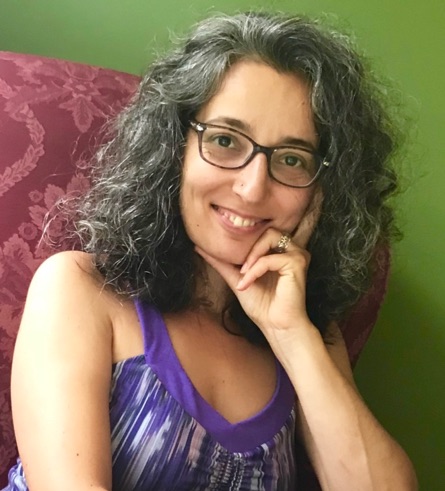
Nelli Sargsyan
Associate Professor
Anthropologist Nelli Sargsyan situates herself at the intersection of feminist political anthropology and queer studies. In her scholarly-poetic work and teaching, Sargsyan is interested in stretching disciplinary and genre boundaries to explore the multisensory possibilities of feminist world-making. Her current research focuses on feminist political work that cultivates feminist political consciousness and collective care, whether it be through direct street action, public performance, or feminist storytelling. Her work has appeared in academic journals such as Feminist Formations, History and Anthropology, and Feminist Anthropology, as well as on online platforms such as ARTMargins, Public Seminar, and Socioscope. She received her PhD in Anthropology from State University of New York at Albany in linguistic and cultural anthropology.
Categories